Let’s not sugarcoat this: diseases, hunger, and our inevitable death have been a strain on our relationship with nature. We needed some distance.
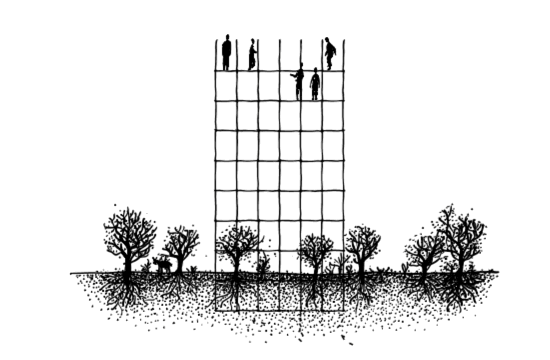
We built houses, retreated to cities, turned wild animals into livestock, and forests into fields. At some point, we even distanced ourselves from our own bodies, and considered our minds as separate.
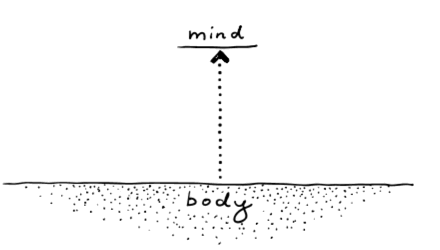
Some future scenarios continue our movement away from nature and the separation of consciousness from biology. Kevin Kelly compiled a summary of such technological forces which currently drive Silicon Valley. Ray Kurzweil wonders how Artificial Intelligence might abandon our bothersome biological wetware — and continue without us.
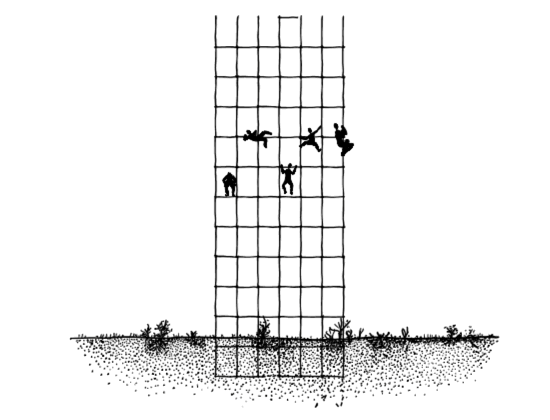
An extreme example of further distancing ourselves from life is perhaps the billionaires’ dream to colonise desert planets. Again, progress seems to be all about distance. And the way forward is a movement away from our biology, away from nature, our bodies, and even our planet.

This movement away from nature has lifted many of us out of poverty and given us fairytale-like powers. And yet, all those scenarios of some AI ruling over a lifeless planet Earth — or our living rooms — are certainly not desirable.
Love for life
We long for life-friendly surroundings. In his wonderful classic “Biophilia” Edward O. Wilson describes how our love for nature has been shaped by evolution. It is essential for our wellbeing and defines us human animals.

So we are both natural and unnatural: We are biological beings, and yet we seek and need distance from nature. How can we reconcile our love for nature with the values of the industrial and digital revolution?
Let’s look at garden spiders for a moment.

Many spiders build their web in two phases: At first they build an auxiliary spiral from the inside out. In a second step they weave a permanent spiral from the outside in.

We can compare some industrial ways of looking at the world with life-friendly counterparts:

Construction vs. Growth: Construction is a fast and controlled process with quick results. Gradual growth on the other hand is a more adaptive, and resilient strategy. Take a look at the wonderful Baubotanik project!

Utility vs. Transcendence: We often reduce animals and plants to useful objects. Yet they can offer us precious insights to the world and ourselves.

Timelessness vs. Presence: Is our obsession with “timeless” design an expression of fear? We could embrace the time restraints of existence in our everyday objects.

Short-term and Long-term: We want more. But why everything at once? An escape from the trap of short-term profit and population increase could be to expand in time rather than in numbers.
Biophilic Design
I suggest that our industrial heritage has been an important preliminary stage. The next step is to carefully examine and implement design values that nurture our joy of life. Just like our “industrial design” illustrated our industrial values, a life-friendly design could express our biophilic values.
This optimistic design approach differs from naive nostalgia or fear of extinction. There is no way back to nature but only forward to nature.
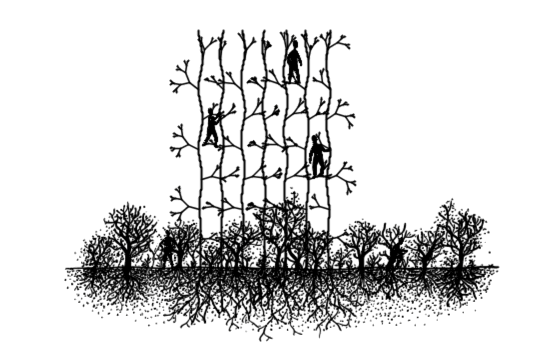
What do you think? Let’s start a conversation in the comment section!
Before you go
If you enjoyed this article, then subscribe to my mailing list to receive more animated stories!

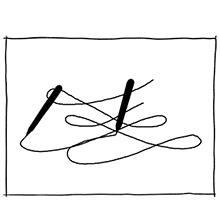
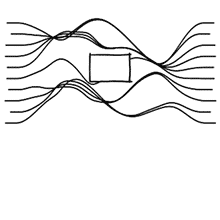
1 comments On Life-friendly design!
This is a really good article, with wonderful animations. I think one of your premises is incorrect however. The “we are both natural and unnatural” seems to stem from a romantic notion of what it is to be human. We are definitely made by nature, shaped by evolution. But what makes us truly *human* is in all the ways we move away from nature.
In essence: poetry is not natural, low rates of child mortality is not natural, philosophy is not natural. They are as good as they are removed from the pressures of nature.
A great discussion of this is found in David Deutsch’s book “The Beginning of Infinity” where he argues that the “Spaceship Earth” metaphor is incorrect. There is no place on earth that is a natural human habitat. And in our current incarnation, there has never been one.
We appreciate the beauty of nature. And we must remain grounded in reality for our happiness. But I think we’re only human as far as we are removed from nature.